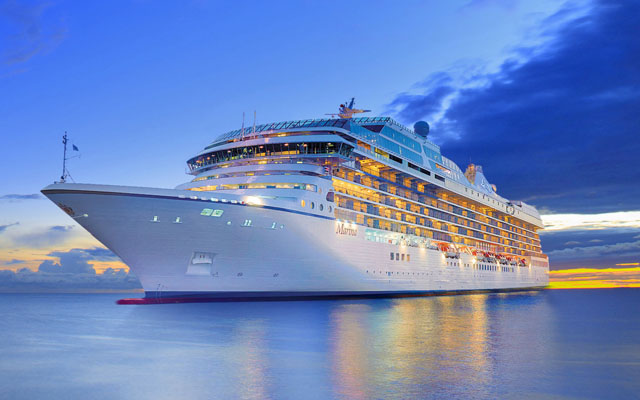In the age of Internet of Things, is data the holy grail for travel companies to win the personalisation war? Find out where the industry stands in using data, its struggles and what the future might hold
With rapid advancement in digital and mobile technology, more travel companies are awakening to the massive potential of using data to unlock possibilities in providing seamless, personalised customer experience.
 Those who are able to leverage millions of travel data points will possess a “huge competitive advantage”, Hotelbeds’ managing director Carlos Muñoz told TTG Asia in a one-on-one interview during its MarketHub Asia event in Bangkok in May. Having access to such information will allow companies to manipulate the “emotional” aspects of travellers by shaping their customer behaviour and maximising their spending potential, he noted.
Those who are able to leverage millions of travel data points will possess a “huge competitive advantage”, Hotelbeds’ managing director Carlos Muñoz told TTG Asia in a one-on-one interview during its MarketHub Asia event in Bangkok in May. Having access to such information will allow companies to manipulate the “emotional” aspects of travellers by shaping their customer behaviour and maximising their spending potential, he noted.
Earlier at the WTTC Global Summit in Bangkok in April, AirAsia CEO Tony Fernandes also played up the importance of data in the travel and tourism sector.
“The data explosion will decrease cost and increase revenue, and gives fantastic opportunities for airlines. That excites me tremendously,” he enthused.
But for travel to be personalised down to the individual level, data insights have to go beyond their current use and adaptation.
Even for Hotelbeds, a global bedbank with more than 136,000 hotels worldwide, Muñoz still sees significant gaps in harnessing the sheer volume of data available.
“Our clients have given us huge amount of data,” he shared. “We are using only five per cent of this data so there is a lot of improvement.”
Albert Pozo, president, Amadeus Asia-Pacific, added: “Data on its own will mean very little. We’ll also need systems that are clever and agile enough to integrate them and make sense of them – turning them into immediate, actionable insights… I think we’re only at the early stages of what could be a fully interconnected industry.”
The ability of data to transform the travel industry cannot be understated, although Pozo stressed that “it is not data itself that is the holy grail – but the analytical capabilities and technology we layer on top of it, and how well it is integrated into business processes. The possibilities are endless”.
It is not data itself that is the holy grail – but the analytical capabilities and technology we layer on top of it, and how well it is integrated into business processes. The possibilities are endless.
Albert Pozo, President, Amadeus Asia-Pacific
Swimming in a sea of data
Bangkok-based DMC Asian Trails has also caught up in the data riptide, having taken advantage of information on the behaviour of clients and consumers to form its marketing and business strategies.
E-commerce and marketing manager Niels Steeman told TTG Asia: “Asian Trails regularly uses analytic sources on our digital marketing channels, Google Analytics and other online applications to seek out trends and our success rate online. I believe that the availability of such data becomes an even more crucial part of the travel business.”
He added: “Looking back barely a decade ago when statistics were hardly available, we are now able to see the response of those showing interest in our products and how they read this. This mainly has been a positive feat with the shift from off to online marketing channels and the ongoing development in the analytics part.”
The digital revolution, however, also brings with it an explosive surge in the variety and quantity of data available, so much so that Steeman dubbed data analysis “a time-consuming and a speciality field”.
He elaborated: “The amount of data available is simply overwhelming and one cannot go and invest into additional resources unless you have a clear image of what you’re after.”
Trying to make sense of data is hardly unique to Asian Trails; even large OTA players like Rakuten Travel, one of the biggest hotel reservation websites in Japan, also see hurdles in effective data utilisation.
Said Hirofumi Haraguchi, vice manager, business strategy group at the OTA’s international sales department: “Data is very important for Rakuten, as we have a huge e-commerce marketplace in Japan with over 80 businesses in our portfolio. However, customer demands are very diversified today so we need to use data better. We’re not maximising the use of data yet, and finding skilled personnel to manipulate data into meaningful insights is a challenge.”
Noel Swain, COO of Ezeego1, deemed data analytics a “learning process” for the India-based OTA, which has put in place associates across various departments instead of a specific team to build a more complete insights picture.
But “the overload of data is quite real” and the challenge lies in figuring which of the immense data Ezeego receives to use, added Swain, but he foresees the company will get better at parsing information into useful insights in future.
Some industry players also share that current data insights are better catered to the B2C travel market, as B2B players still grapple with gleaning meaning from the vast sea of information available.
For B2B OTA Aviation Services Mongolia, currently in the early stages of developing a data analytics strategy, the uphill task lies in getting information from its agents about their end-consumers, according to CEO Margad Byambajav.
If unstructured sources of customer data could be better leveraged for his portal, he foresees being able to help agents narrow down hotel choices in a destination to offer more targeted and personalised recommendations for their clients.
It’s a similar story for Asian Trails, as Steeman sees data analytics “remaining very much focused on B2C/B2B2C channels than B2B channels”. Learning how to interpret available data and actively turn them into actionable insights and strategies may the biggest challenges for DMCs, he opined.
Not big but smart data
No one will be able to capture and analyse data from the future, but predictive analytics – i.e. applying the right statistical models to gain insights and find patterns in a vast amount of data – is getting the attention of more big data specialists and travel businesses alike.
Hotelbeds’ sales director Sam Turner spotlighted the accelerating pace of change in the digital world today. “By 2020 the world will produce 40 zettabytes, up from 0.1 zettabytes in 2001, a 400 times difference. It’s not the size (of data) but what you do with it,” he said, adding that the effective data analytics can improve profitability for companies. “The analytics journey in the new world is going to be the prescriptive way, instead of descriptive.”
Echoing Turner’s view, Hotelbeds’ marketing & communications director Gareth Matthews added that predictive analytics has many potential applications in the travel industry, such as making airport delay predictions by combining weather, flight and traveller information.
But the current biggest hurdle to personalised service for companies lies in the lack of resources connecting different data sets, say, between a user’s frequent flyer programme and social media profile, pointed out Ming Foong, managing director Greater China & online business group, Asia-Pacific at Travelport.
Looking ahead, merging predictive analytics with artificial intelligence (AI) and matching learning capabilities appear to excite many trade players and industry watchers.
Amadeus’ Pozo elaborated: “Combined with AI, travel companies can use data analytics to create highly-tailored offers based on customers’ needs and preferences. Past behaviours can obviously feed AI computers to predict future purchase actions. But deep learning algorithms can help travel companies make the most out of their customer’s online activities…AI will also bring customised suggestions during the trip based on a traveller’s profile, location, time, and many other parameters and data that algorithms will process. This will take us into the future of ultra-personalisation.”
At the same time, Pozo insisted on maintaining a careful balance against rising privacy concerns in the pursuit of getting more information from travellers.
“Some boundaries must be maintained and at all times we must respect and protect personal data and the need for privacy. If we take this for granted we risk losing the trust of customers. And above and beyond adhering to legislation, travel players must also be able to articulate ‘what’s the value?’ for getting travellers to share their data,” he cautioned.
But Steve Saxon, partner, McKinsey & Company, reminded the industry not to lose sight of people – the critical factor that determines the success of data utilisation. “We need to think not just about data but how to embed data within the company culture,” he said.
“The power of the people is more important than the power of data,” Saxon concluded.
This article was first published in TTG Asia July 2017 issue. To read more, please view our digital edition or click here to subscribe.




















